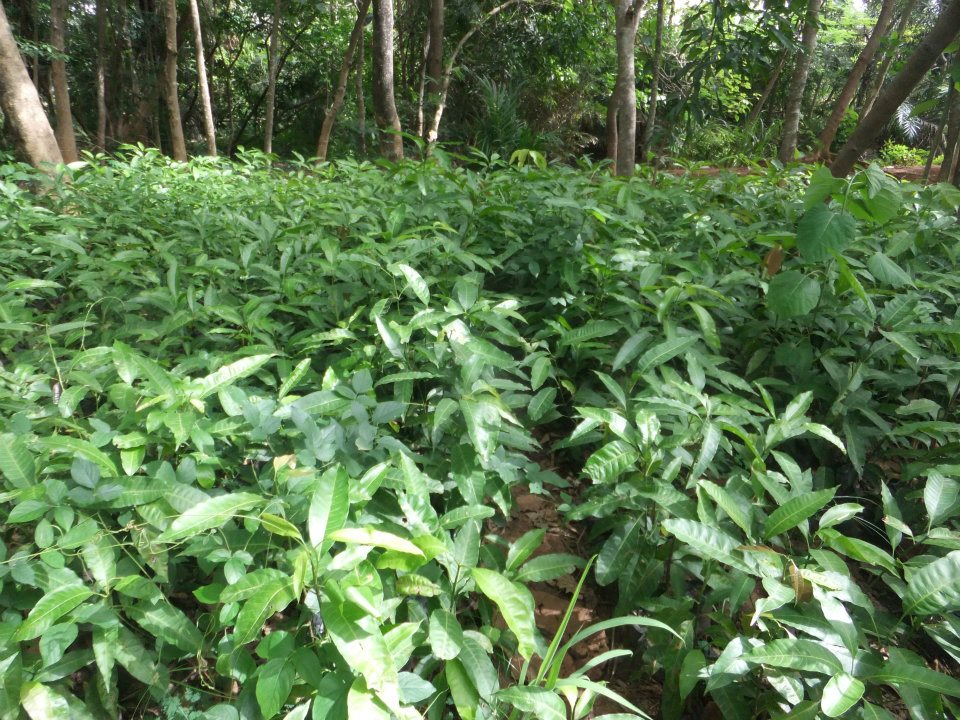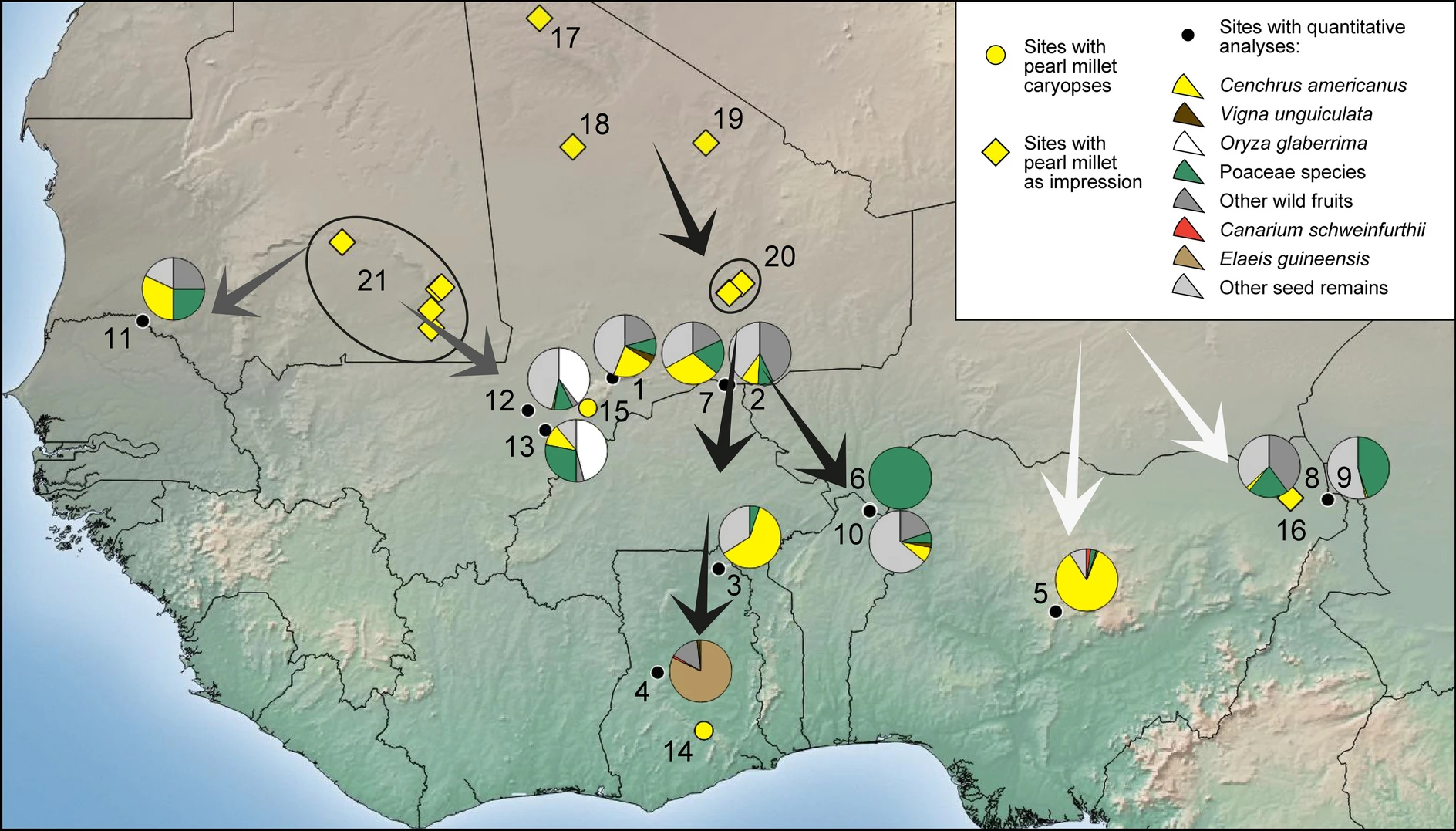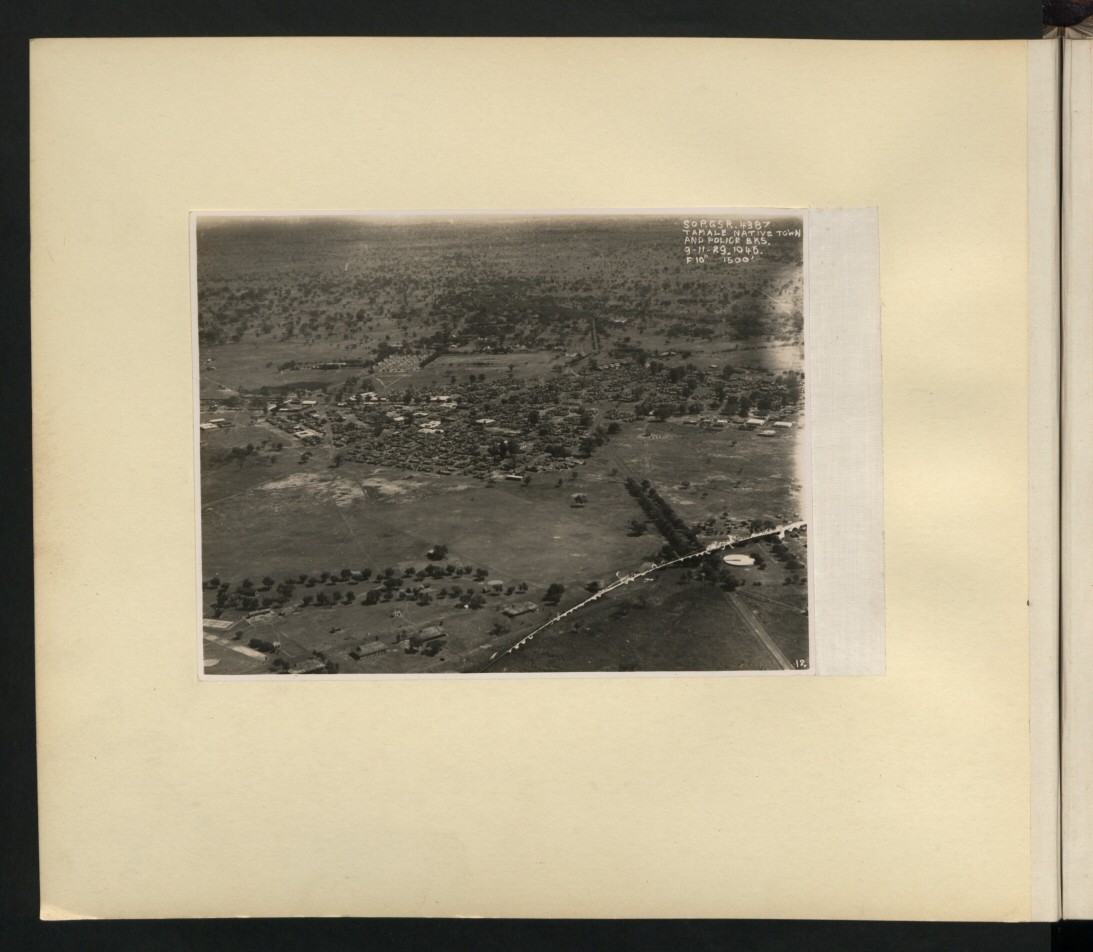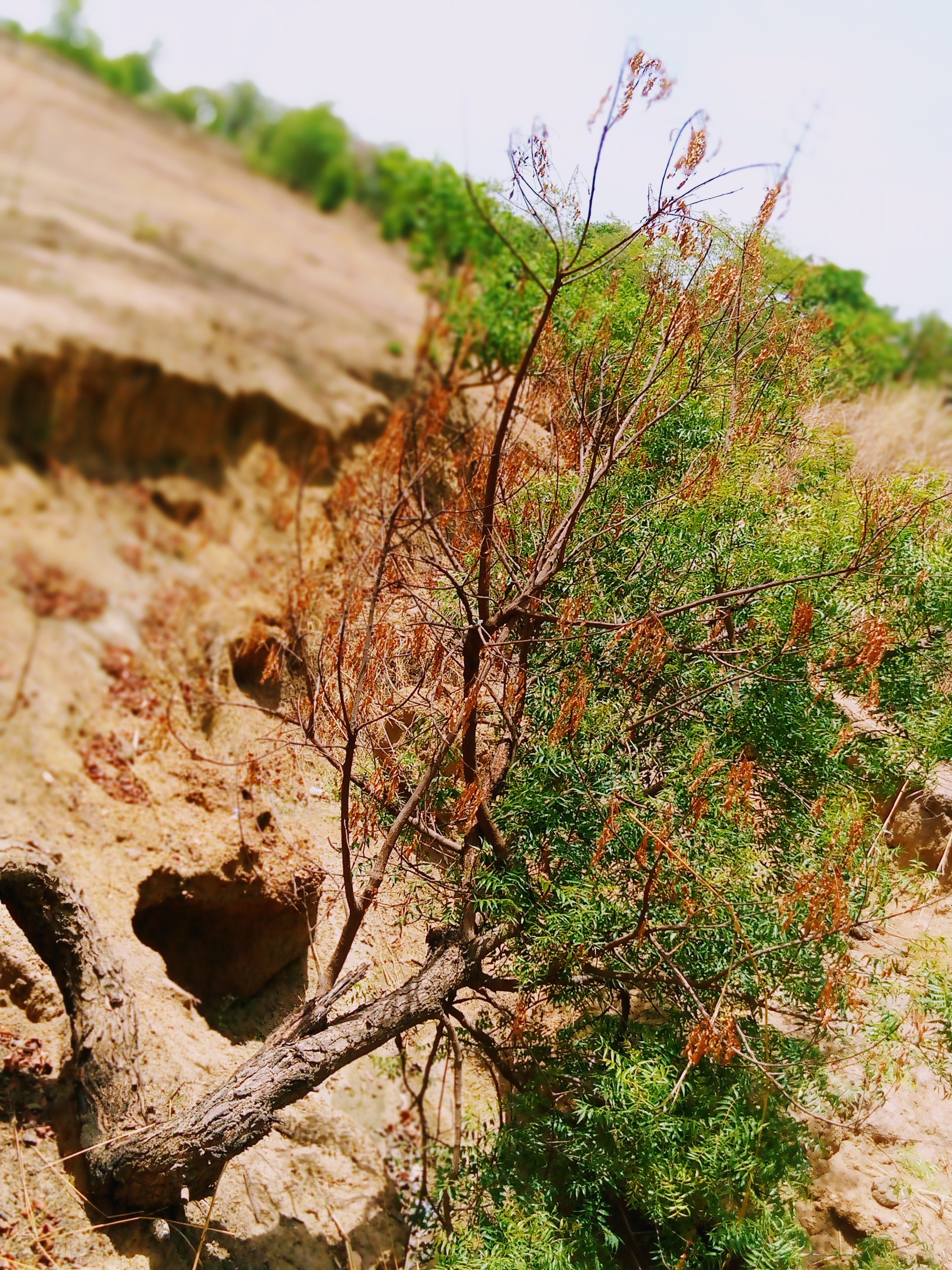|
Tekyiman
Techiman (Akan: ''Takyiman'') is a city and the capital of the Techiman Metropolitan District and the Bono East Region of Ghana. The city is located about from Sunyani and about away from Kumasi. It has a tropical savanna climate, experiencing two wet seasons and a dry season. Techiman has a population of 67,241 as of the 2010 census released by the Ghana Statistical Service. The majority of ethnic groups in the city included the Akan, Bono, Gonja, Dagomba, Sisala, and Mamprusi people. The mayor of the city's metropolitan, as of 2021 is Benjamin Yaw Gyarko. The city was formally founded in 1740 and officially established as the Bono-Tekyiman state in the 1940s, after the Bono state's capital Bono Manso was taken over in 1723. After a referendum in 2018 was passed with the focus of creating new regions in Ghana, Techiman was selected to be the capital of the newly created region of the Bono East Region. Techiman is the site of an outdoor agricultural market, one of the lar ... [...More Info...] [...Related Items...] OR: [Wikipedia] [Google] [Baidu] |
Akan People
The Akan () people are a kwa languages, Kwa group living primarily in present-day Ghana and in parts of Ivory Coast and Togo in West Africa. The Akan speak languages within the Central Tano languages, Central Tano branch of the Potou–Tano languages, Potou–Tano subfamily of the Niger–Congo languages, Niger–Congo family.''Languages of the Akan Area: Papers in Western Kwa Linguistics and on the Linguistic Geography of the Area of Ancient''. Isaac K. Chinebuah, H. Max J. Trutenau, Linguistic Circle of Accra, Basler Afrika Bibliographien, 1976, pp. 168. Subgroups of the Akan people include: the Adansi, Agona, Akuapem people, Akuapem, Akwamu, Akyem, Anyi people, Anyi, Ashanti people, Asante, Baoulé people, Baoulé, Bono people, Bono, Chakosi people, Chakosi, Fante people, Fante, Kwahu, Sefwi people, Sefwi, Wassa, Ahanta people, Ahanta, Denkyira and Nzema people, Nzema, among others. The Akan subgroups all have cultural attributes in common; most notably the tracing of royal m ... [...More Info...] [...Related Items...] OR: [Wikipedia] [Google] [Baidu] |
Bono State
Bono State (also known as Bonoman) was the first centralized Akan state, founded by the Bono people in what is now central Ghana. Bonoman is generally considered a cultural, political ancestor and origin to Akan subgroups that migrated southward and eastward during and after its decline in the 18th centuries. The capital centered at Bono Manso, the state flourished in the forest–savanna transition zone and encompassed areas within present-day Bono Region, Bono East Region, and Ahafo Region, as well as parts of eastern Ivory Coast. Bono state was a trading centre connecting merchants across Africa. The state's wealth grew substantially through the control of gold production and trade, with material culture such as goldweights, brassworking, and textiles attesting to its urban complexity. The Akan gold trade to the savannah and far beyond had been essential since the opening of Akan goldfields to Juula merchants under Mali and Songhai empire dating back to at least 15th cen ... [...More Info...] [...Related Items...] OR: [Wikipedia] [Google] [Baidu] |
City
A city is a human settlement of a substantial size. The term "city" has different meanings around the world and in some places the settlement can be very small. Even where the term is limited to larger settlements, there is no universally agreed definition of the lower boundary for their size. In a narrower sense, a city can be defined as a permanent and Urban density, densely populated place with administratively defined boundaries whose members work primarily on non-agricultural tasks. Cities generally have extensive systems for housing, transportation, sanitation, Public utilities, utilities, land use, Manufacturing, production of goods, and communication. Their density facilitates interaction between people, government organisations, government organizations, and businesses, sometimes benefiting different parties in the process, such as improving the efficiency of goods and service distribution. Historically, city dwellers have been a small proportion of humanity overall, bu ... [...More Info...] [...Related Items...] OR: [Wikipedia] [Google] [Baidu] |
Akan Language
Akan (), or Twi-Fante, is the most populous language of Ghana, and the principal native language of the Akan people, spoken over much of the southern half of Ghana. About 80% of Ghana's population speak Akan as a first or second language, and about 44% of Ghanaians are native speakers. The Bono dialect is also spoken across the border in Ivory Coast. Three dialects were developed as literary standards with distinct orthographies: Asante and Akuapem, collectively known as Twi, and Fante. Despite being mutually intelligible, they were inaccessible in written form to speakers of the other standards until the Akan Orthography Committee (AOC)'s development of a common Akan orthography in 1978, based mainly on Akuapem dialect. As the first Akan variety to be used for Bible translation, Akuapem had become the prestige dialect. With the Atlantic slave trade, Akan languages were introduced to the Caribbean and South America, notably in Suriname, spoken by the Ndyuka, and i ... [...More Info...] [...Related Items...] OR: [Wikipedia] [Google] [Baidu] |
Asante Empire
The Asante Empire ( Asante Twi: ), also known as the Ashanti Empire, was an Akan state that lasted from 1701 to 1901, in what is now modern-day Ghana. It expanded from the Ashanti Region to include most of Ghana and also parts of Ivory Coast and Togo. Due to the empire's military prowess, wealth, architecture, sophisticated hierarchy and culture, the Asante Empire has been extensively studied and has more historic records written by European, primarily British, authors than any other indigenous culture of sub-Saharan Africa. Starting in the late 17th century, the Asante king Osei Tutu ( – 1717) and his adviser Okomfo Anokye established the Asante Kingdom, with the Golden Stool of Asante as a sole unifying symbol. Osei Tutu oversaw a massive Asante territorial expansion, building up the army by introducing new organisation and turning a disciplined royal and paramilitary army into an effective fighting machine. In 1701, the Asante army conquered Denkyira, giving the ... [...More Info...] [...Related Items...] OR: [Wikipedia] [Google] [Baidu] |
Tamale, Ghana
Tamale () is the capital city of the Northern Region of Ghana. It is Ghana's third largest city, with a population of 371,351 people (as of 2010). The city has been ranked as the fastest-growing city in West Africa. Tamale is located in the Kingdom of Dagbon, Ghana's oldest Kingdom. Major ethnic groups who resided in Tamale are Dagomba, Gonja, Mamprusi, Akan, and Dagaaba. The city grew from a small village to an important economic center in the Northern Territories after the British had established administrative headquarters in the area. It became the capital of the Northern Region in 1960. The biggest economic sector of Tamale is agriculture, followed by trading, teaching, and manufacturing. Tamale boasts a thriving artistic and literary scene, evident in its numerous art studios, poets, and musicians. Numerous art studios are scattered throughout the urban landscape. Annual festivals are celebrated all around the city, such as fire festival, Eid ul-Fitr, Eid Adha an ... [...More Info...] [...Related Items...] OR: [Wikipedia] [Google] [Baidu] |
Wa, Ghana
Wa is a town and the capital of the Wa Metropolitan Assembly and the Upper West Region of Ghana. It has a population of 200,672 people according to the 2021 census. The town is a transportation hub for the Upper West region, with major roads leading north to Hamile, and northeast to Tumu, Ghana, Tumu and the Upper East Region. There is also a small airport, named the Wa Airport.Touring Ghana – Upper West Region touringghana. History Etymology ''Wa'' is a Dagbani language, Dagbani word meaning ''te wa kaa yeng seore'' ('we came to watch a dance').Formation Wa emerged as an important center of trade. Under the Northern Territories of the Gold Coast, Northern Protectorates, the town experienced slow inf ...[...More Info...] [...Related Items...] OR: [Wikipedia] [Google] [Baidu] |
Trunk Road
A trunk road is a major highway with a specific legal classification in some jurisdictions, notably the United Kingdom, Sweden and formerly Ireland. Trunk roads are planned and managed at the national-level, distinguishing them from non-trunk roads which are managed by local authorities. Trunk roads are important routes usually connecting two or more cities, ports, airports and other places, which is the recommended route for long-distance and freight traffic. Many trunk roads have segregated lanes in a dual carriageway, or are of motorway standard. The term trunk road, or trunk highway, is sometimes used more generically to refer to other categories of major highway. United Kingdom In the United Kingdom, trunk roads were first defined for Great Britain in the Trunk Roads Act 1936 ( 1 Edw. 8. & 1 Geo. 6. c. 5). Thirty major roads were classed as trunk roads, and the Minister of Transport took direct control of them and the bridges across them. The Trunk Roads Act came int ... [...More Info...] [...Related Items...] OR: [Wikipedia] [Google] [Baidu] |
West Africa
West Africa, also known as Western Africa, is the westernmost region of Africa. The United Nations geoscheme for Africa#Western Africa, United Nations defines Western Africa as the 16 countries of Benin, Burkina Faso, Cape Verde, The Gambia, Ghana, Guinea, Guinea-Bissau, Ivory Coast, Liberia, Mali, Mauritania, Niger, Nigeria, Senegal, Sierra Leone, and Togo, as well as Saint Helena, Ascension and Tristan da Cunha (United Kingdom Overseas Territories, United Kingdom Overseas Territory).Paul R. Masson, Catherine Anne Pattillo, "Monetary union in West Africa (ECOWAS): is it desirable and how could it be achieved?" (Introduction). International Monetary Fund, 2001. The population of West Africa is estimated at around million people as of , and at 381,981,000 as of 2017, of which 189,672,000 were female and 192,309,000 male.United Nations Department of Economic and Social Affairs, Population Division (2017). World Population Prospects: The 2017 Revision, custom data acquired via webs ... [...More Info...] [...Related Items...] OR: [Wikipedia] [Google] [Baidu] |
2018 Ghanaian New Regions Referendum
A referendum on creating new regions was held in Ghana on 27 December 2018. Voting took place in the 47 districts that would potentially become part of new regions which would be created by splitting four of the existing regions. The proposed splits were: * Northern split into Northern, North East and Savannah; * Volta split into Volta and Oti; * Western split into Western and Western North; * Brong-Ahafo split into Bono Paul David Hewson (born 10 May 1960), known by the nickname Bono ( ), is an Irish singer-songwriter and activist. He is a founding member, the lead vocalist, and primary lyricist of the rock band U2. Bono is known for his impassioned voca ..., Ahafo and Bono East. All proposed new regions were approved, with 'yes' votes above 99% in all regions and turnouts ranging from 80% to 90%. References {{DEFAULTSORT:Ghanaian new regions referendum,2018 2018 New Regions Ghana New Regions New regions referendum Presidency of Nana Akufo-Addo ... [...More Info...] [...Related Items...] OR: [Wikipedia] [Google] [Baidu] |
Bono Manso
Manso or Maaso, often referred to as Bono-Manso in historical contexts, was an urban centre of significant religious, political, and economic influence. It was situated on the northern Forest–savanna mosaic, forest savanna zone of Akan realm. Founded c. 1000 CE, it was the capital of the Bono state from the 11th century to 1723. Bono Manso flourished into a prominent and cosmopolitan centre of trade to the Bono state, attracting Muslim Dyula people, Juula from the Mali Empire, Mali empire and several merchants across North Africa, North and West Africa. According to oral traditions, merchants brought textiles, salt, and brass where they traded them for gold, kola, and slaves. Just like its twin-counterpart Begho, Bono Manso had a huge market called Dwabirem in the southwest direction, linking the sub-Saharan and ultimately European long distance trade. After the Asante destroyed Bono Manso in 1723, Techiman succeeded it. Presently, Bono Manso is a village north of Techiman in ... [...More Info...] [...Related Items...] OR: [Wikipedia] [Google] [Baidu] |
Ghana Statistical Service
The Ghana Statistical Service (GSS) is a Ghanaian governing body established to report to the presidency. The GSS conducts Population and Housing Census in the country. History The GSS is a Public Service body established under the Statistical Service Law 135 in 1985 by the PNDC. The first population census A census (from Latin ''censere'', 'to assess') is the procedure of systematically acquiring, recording, and calculating population information about the members of a given Statistical population, population, usually displayed in the form of stati ... in Ghana began in 1891 as efforts were made to collect and disseminate statistical information. Chief Executives * Grace Bediako (2004-2013) * Philomena Nyarko (2013-2016) References National statistical services Government agencies of Ghana {{Ghana-gov-stub ... [...More Info...] [...Related Items...] OR: [Wikipedia] [Google] [Baidu] |







